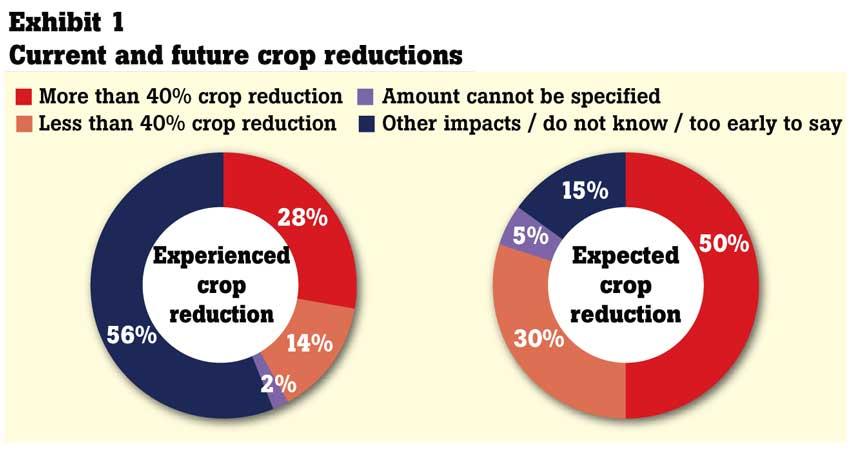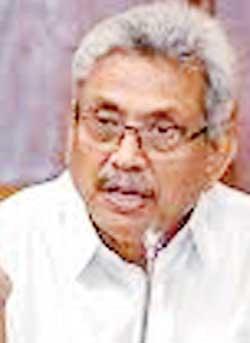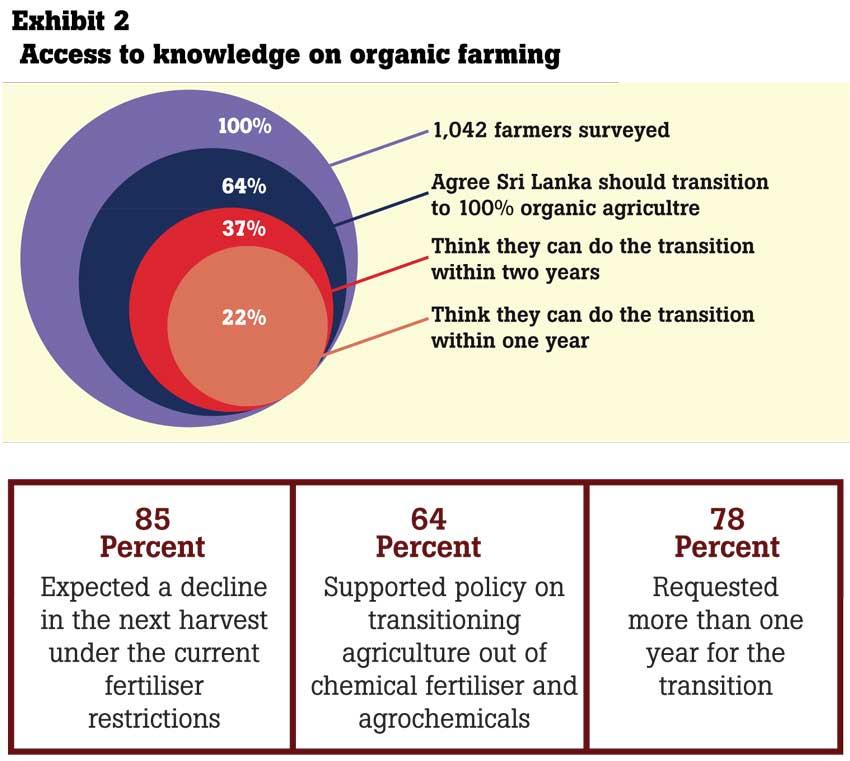29 Apr 2022 - {{hitsCtrl.values.hits}}

 On April 22, 2021, President Gotabaya Rajapaksa announced a ban on the importation of chemical fertiliser to make Sri Lanka “the first country in the world to be free of chemical fertiliser”. The decision was passed into law by a gazette published by the Finance Ministry on May 06, 2021.
On April 22, 2021, President Gotabaya Rajapaksa announced a ban on the importation of chemical fertiliser to make Sri Lanka “the first country in the world to be free of chemical fertiliser”. The decision was passed into law by a gazette published by the Finance Ministry on May 06, 2021.
Verité Research conducted an all-island phone survey among farmers from July 01 to 10, 2021, to find out the views of the farmers and the impact of the decision. The survey covered all nine provinces and included 1,042 farmers cultivating all major crops: paddy, fruits, vegetables, coconut, tea, minor export crops (spices) and cereal.

The survey had four major findings that were important for the decision-making of the government: (1) farmers were broadly supportive of the government policy to transition to organic fertiliser; however, farmers: (2) expected huge reduction in harvest under current restrictions, (3) lacked knowledge as well as sources of knowledge to transition to organic farming and (4) wanted more time to make the transition.
The survey findings suggested, overall, that Sri Lankan policymakers should attempt to avert a policy-induced shortage in agriculture output and food production by considering the pragmatic views of the farmers, most of whom are supportive of the government’s chemical fertiliser-free agriculture policy. Failing to do so will further aggravate the pains caused by the pandemic.
Context of new fertiliser policy
The dependence of farmers on chemical fertiliser was high (according to the survey responses). Over 90 percent of the farmers surveyed use chemical fertiliser. For a majority of them (76 percent), chemical fertiliser accounts for more than half of their total fertiliser usage. Paddy farmers, who provide the country with rice, its staple food, are the highest users of chemical fertiliser (94 percent).
Broad support for organic fertiliser policy
At the time the survey was done (i.e., two months after the ban was introduced), the support among farmers for the government policy was high. Almost two-thirds agreed that the country should transition into organic agriculture: 64 percent of the farmers surveyed answered “yes” to the question “Do you agree that Sri Lanka should transition to 100 percent organic agriculture?”

Majority of farmers expect next harvest to reduce almost by half
Even at the time the survey was conducted, the ban had created a shortage of chemical fertiliser in the market, denying the farmers the required quantity of fertiliser. Sixty-three percent of farmers surveyed said “yes” when asked in July 2021, whether they were compelled to reduce the quantity of chemical fertiliser used in the current/most-recent cultivation cycle in comparison to normal usage. Nearly half of those surveyed (44 percent) said that the recent overall reductions made in chemical fertiliser and/or agrochemicals negatively affected their most-recent harvest.
When asked what they think would be the future impact on harvest/quantity produced, if they could not use chemical fertiliser or agrochemicals, an overwhelming majority (85 percent) said that they expected a reduction in their future harvest. Half of the farmers surveyed expected the harvest to reduce by more than 40 percent (Exhibit 1).
Lack of knowledge and guidance
The survey found that the farmers lacked the necessary knowledge and guidance on chemical fertiliser-free agriculture. While 35 percent of the farmers believed they had adequate knowledge to cultivate without chemical fertiliser, when that group was probed further, only 23 percent said they were also aware of the suitable organic alternatives for their crops and only 20 percent said they also knew how to correctly apply the suitable organic fertiliser (Exhibit 2).
When asked whether they have received guidance/instructions on how to engage in agriculture without using chemical fertiliser or agrochemicals, nearly two-thirds of the farmers (63 percent) said “no”. Over half of the farmers said “no” when asked whether they know people with knowledge and experience who can advise them on how to cultivate without using any chemical fertiliser or agrochemicals.
Farmers need more time and govt. assistance to transition
Almost two-thirds of the farmers agreed that Sri Lanka should transition to 100 percent organic agriculture. However, when asked how much time they need to successfully transition to 100 percent organic agriculture, 78 percent of those who supported the policy said they need more than a year to transition.
In response to the question “what advise/suggestions will you give to the government on transitioning to organic agriculture successfully?”, the following three requests topped the list: 1) more time to make the transition, 2) necessary guidance/instructions and 3) standardised organic alternatives.
Conclusion
The voice of the farmers captured in this survey revealed that a majority of them were not asking for a change in policy but asking for an adoption of a more pragmatic approach in the manner the policy was being implemented.
The survey findings were an early warning sent to the government by farmers of a possible food shortage. Sri Lanka would do well to avert a policy-induced food shortage by taking note of these early warnings and the pragmatic requests by the farmers for more time and assistance in implementing the transition towards organic fertiliser.
23 Dec 2024 6 minute ago
23 Dec 2024 51 minute ago
23 Dec 2024 2 hours ago
23 Dec 2024 2 hours ago
23 Dec 2024 2 hours ago